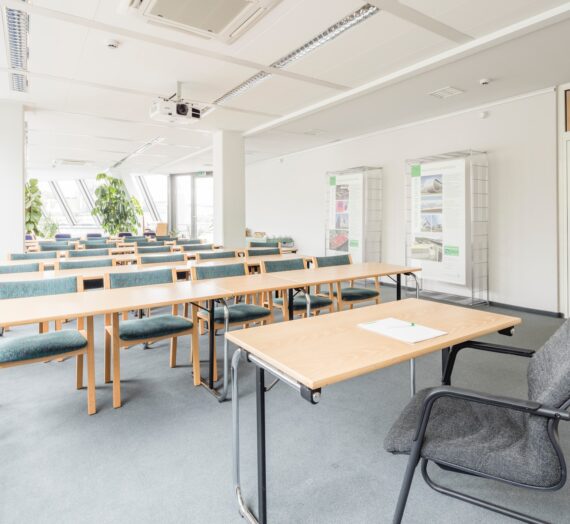Given my long absence, aptly termed “dropping off the face of the Earth”, you would think that I had abandoned my readers. Rest assured, nothing could be further from the truth. I’m back and committed to my mission writing this blog. And I hope to show that commitment in the coming months.
Several months ago, I had started a series discussing the factors which I believe contribute to French not being a popular language to learn among Jamaicans. I would encourage you to read that post given that some of the points covered in that post will inevitably provide some context for this one. In today’s post, I want to discuss access to French language-learning in schools – or the lack there of – and how that has played a role in very few Jamaicans learning French.
In order to delve into this topic, I have to draw on my own French journey, which I have written about in the past. In a nutshell, I studied French for all seven years of my high school career. Reflecting on that experience, I’m able to acknowledge that my experience was a unique one within the framework of the Jamaican education system. And I say that because the Jamaican education system is not, in my opinion, one that facilitates language-learning. To my knowledge, there is no government mandate for Jamaican schools to teach foreign languages. And if there is one, it’s not being heavily enforced. On top of that, school administrations are more focused on allocating resources towards more important (or what they deem to be more important) aspects of a curriculum; mathematics, English language and the sciences. Do not misread me, I am not saying that language-learning is not important. As an advocate for language-learning, I think that it’s very important. However, some schools may disagree and believe that language-learning is a luxury rather than a necessity; to be considered AFTER other aspects of the curriculum are taken care of. You may notice that some of those same schools also don’t offer subjects such as Art, Home and Family Management or Music, likely for the same reasons. Consequently, there are students who are deprived of any exposure to a foreign language during their primary or secondary education.
Thankfully, this is not the reality of all Jamaican schools; there are plenty of schools that teach their students a foreign language. However, more often than not, the language of choice is Spanish. I will not rehash Jamaica’s attraction to Spanish language and culture, you can read all about that in Part 1. What I will say is that those factors have influenced another aspect of the Jamaican education system – teachers. Before we jump to conclusions, this post will not engage in any teacher-bashing. Teachers are the unsung heroes of our society. That being said, I believe that the amount of competent language teachers in Jamaica is an indicator of what our students are learning. Try as I might, I was unsuccessful in finding precise statistics stating the ratio of Spanish teachers to French teachers. However, it doesn’t take a rocket scientist to conclude that French teachers are vastly outnumbered. Spanish teachers are a dime a dozen. In theory, they go hand-in-hand with school administrations that believe if you’re teaching students a foreign language, you want to teach them one that they are more likely to use. You can read my thoughts on that line of thinking in Part 1. However, that line of thinking has bred a vicious cycle whereby everyone believes in the alleged “superiority” of Spanish and as a result teach it in school. Those of us who learned Spanish in school and grew up to become language teachers learn to teach Spanish because of previous exposure. And then those teachers go to schools and teach Spanish. And this cycle leaves very little room to introduce students to something different. At the other end of the spectrum, you have French teachers. An entire association of them (hello readers from the Jamaica Association of French Teachers). Nevertheless, between Jamaica’s views on Spanish, an abundance of Spanish teachers and very few schools having the resources to teach both Spanish and French, for numerous schools in Jamaica teaching French is a pipe dream. According to JAFT, there are less than 50 public schools that teach French. And you don’t need me to tell you that Jamaica has more than 50 schools. And I’ll go further to say that those 40-something schools are teaching both Spanish and French. I highly doubt that there’s a Jamaican public school that only teaches French (but please, correct me in the comments section).
The disparity between Spanish and French teachers is the most apparent in relation to CXC exams. French is available at both the CSEC and CAPE levels, however that is no guarantee of teachers who are able to teach at those levels. At CSEC and CAPE, you need teachers who are experienced and familiar with the language and the syllabus in order to prepare students for exams. Returning to my personal experience, when I was in high school there was only one teacher who was able to teach CAPE French. And in order to facilitate this one teacher, the grades twelve and thirteen French classes were combined because it would have been stressful for her to try and teach two different syllabi. And that experience is better than being at a school that doesn’t offer CAPE French, and either accepting that, finding a new school to attend or pursuing it outside of school. So imagine having a small pool of French teachers that incrementally decreases with increasing grade level. In the end there are less students able to study a language, or study a language to a degree of competence. Which is a pity because in the the 2019-2020 CXC season, there were 889 French candidates compared to over 3000 Spanish candidates. Yet, results-wise, French students performed just as well if not better than their Spanish counterparts. Therefore, the ability and commitment is there, but the resources are not.
I want to conclude this post by saying that my experience studying French was as a result of winning a lottery. But education shouldn’t be a lottery. Because our students and our society will suffer for it.





French-Action
Your post is a good analysis of what is happening. Another thing which is happening is that some French teachers, after their year in France via the Tapif program, come back to Jamaica and find themselves having to teach Spanish. Spanish is in demand and I don’t think that we have enough Spanish teachers either. So if you can teach both languages, you will find a teaching post easily, but more likely for teaching Spanish. And yet, it is difficult to replace a French teacher. There are only about 120 French teachers in Jamaica. We have to be grateful to Shortwood Teachers College which is still promoting the French language. Most of their students register to study Spanish and some of them will end up teaching French instead of Spanish because they were introduced to Molière’s language at Shortwood and preferred it. Vive Shortwood Teachre’s College.